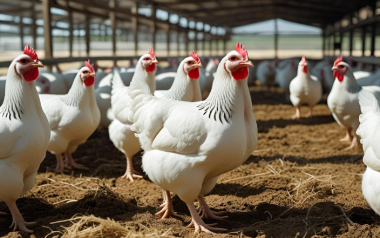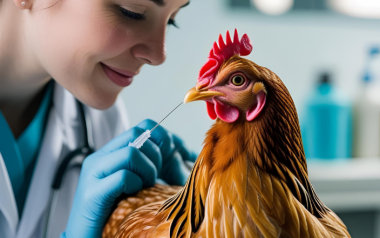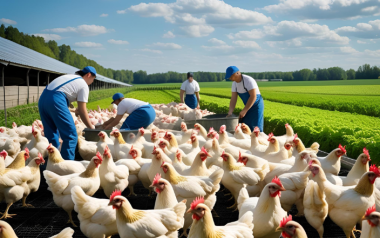Sources: Available upon request.
20 Feb 2024
Hens may suddenly stop laying eggs
Situations such as molting feathers, disease, age and various stressors are common causes for hens to suddenly stop laying eggs.
Some common causes for hens to suddenly stop laying eggs are:
- Molting feathers
- Disease
- Age
- Various stress possibilities
The productivity of laying hens can be suddenly interrupted or ostensibly decreased due to several factors that fortunately have been identified and management strategies that help reduce the impact on production.
The most critical moment is the molting of feathers, which occurs once a year in birds and prevents them from creating eggs, since both functions are not compatible. Either the hens produce their new feathers, or they produce eggs, they cannot do both at the same time. During this molting period, the birds reduce their feed intake and lose body weight. At the end of the molt, with a special high-protein diet, they gain weight again, regenerate the functionality of their reproductive apparatus and return to egg production.
Diseases are another major cause of low egg production in layers. They immediately affect production because they are highly contagious, spread very quickly and affect vital organs. The most common diseases are:
- Avian influenza
- Avian plague
- Encephalomyelitis
- Infectious bronchitis
- Avian cholera
- Marek’s disease
The presence of lice or mites in hens also affects the laying cycle. That is why it is essential to anticipate the times of proliferation and disinfect the poultry sheds and the environment.
Diseases or viral problems can affect the normal functioning of the oviduct or cloaca. This slows egg production. In addition, tumors and reproductive disorders are very common in laying hens.
The third circumstance that influences egg laying is the age of the birds. A hen starts laying eggs between the fifth and sixth months and, if there are no problems, production should remain stable until 20 to 24 months (two years) when production will start to decrease. The stage from 18 to 35 weeks is one of the most important, since this is when it is defined whether the hen will be economically profitable.
When production is 70% of normal or less, it is time to discard the hen. The nutritional requirements of layers are extreme and any decrease in feed quality or feed imbalance will influence egg production. Low quantity or quality of water is also a determining factor.
Lighting is also vital to the layer poultry industry. Light causes hen’s pituitary gland to produce eggs. For this, an average of 14 to 16 hours of light is required to produce eggs.
Frightened hen does not lay eggs
Loud noises, lightning or thunder, invasive animals such as dogs, cats, foxes, opossums and others can cause panic in the shed and cause the hens to stop laying eggs. Other stressful situations that influence egg laying are comfort losses such as excessive cold or heat.









































